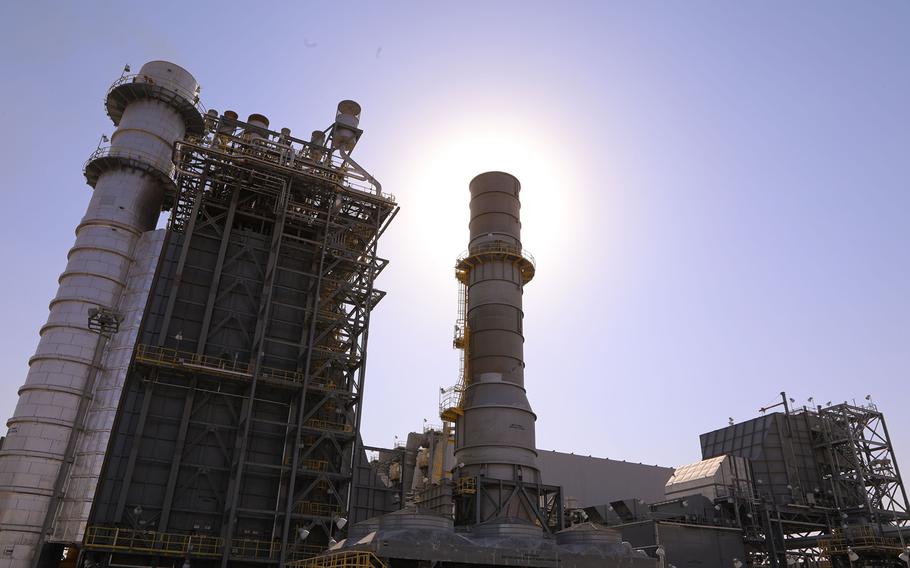Middle East
AnalysisOPEC+ watchers see increased chance of deeper oil supply cuts
Bloomberg November 24, 2023

A gas turbine generator in an oil field in Khurais, Saudi Arabia, on June 28, 2021. (Maya Sidiqqui/Bloomberg)
After a week of turmoil, expectations for the delayed OPEC+ meeting have shifted.
Saudi Arabia and Russia - leaders of the OPEC+ coalition - are still largely expected to extend output curbs of just over 1 million barrels a day through the first quarter to shore up prices, according to a Bloomberg survey of traders and analysts.
But despite a postponement of the gathering amid a dispute over output quotas for African members, around half of respondents now see OPEC+ unveiling measures to tighten oil markets when it gathers on Nov. 30. Last week, only one had such expectations.
Six of those surveyed predict the additional curbs will be spread across the Organization of Petroleum Exporting Countries and its partners, while two projected they’d be made by Riyadh and Moscow alone. Despite the current impasse, none forecast a failure to reach agreement entirely.
The 23-nation OPEC+ alliance faces pressure to intervene, following a 15% drop in crude prices over the past two months amid plentiful supplies and a darkening economic backdrop. Markets could weaken further in early 2024, when forecasters including the International Energy Agency anticipate the emergence of a new supply surplus.
Delegates have mostly indicated a simple extension of the extra supply cuts being made by Riyadh and Moscow. But further action by the group as a whole could also be considered, they said. RBC Capital Markets LLC, JPMorgan Chase & Co. and hedge fund manager Pierre Andurand have flagged this possibility.
“If Saudi Arabia were then merely to extend its voluntary cuts, the price would likely fall somewhat in the short term,” said Carsten Fritsch, an analyst at Commerzbank AG.
Following a week of confusion from OPEC+, crude traders seem skeptical that the cartel is united enough to act. Brent futures rallied 4% when reports of a collective cutback emerged on Nov. 17, but have since cooled to trade below $82 a barrel on doubts over OPEC’s cohesion.
The alliance had to push back its ministerial meeting by four days to Nov. 30 because members Angola and Nigeria refused to accept lower output quotas, pressed on them by the group’s leaders. OPEC+ also announced the gathering will be held as an online webinar rather than an in-person meeting at OPEC’s headquarters in Vienna as originally planned.
Despite these setbacks, OPEC watchers were confident that the group will do something too boost prices.
“The aim will be to scare away the oil bears,” said Vandana Hari, founder of consultancy Vanda Insights in Singapore.
With assistance from Sarah Chen, Fiona MacDonald, Salma El Wardany and Ben Bartenstein.
Visit bloomberg.com
©2023 Bloomberg L.P.